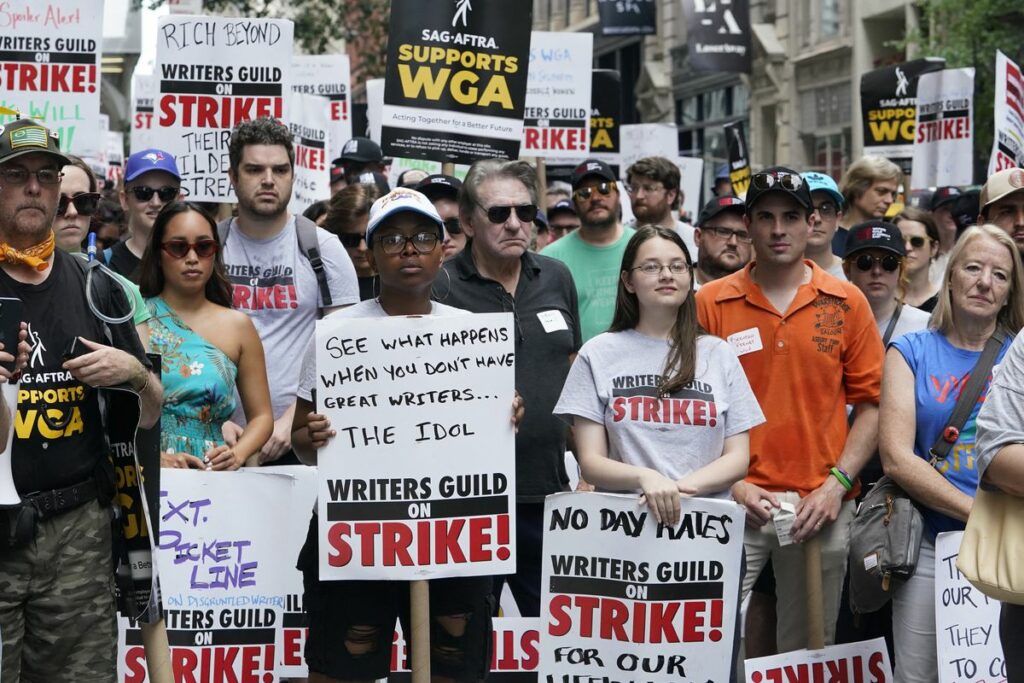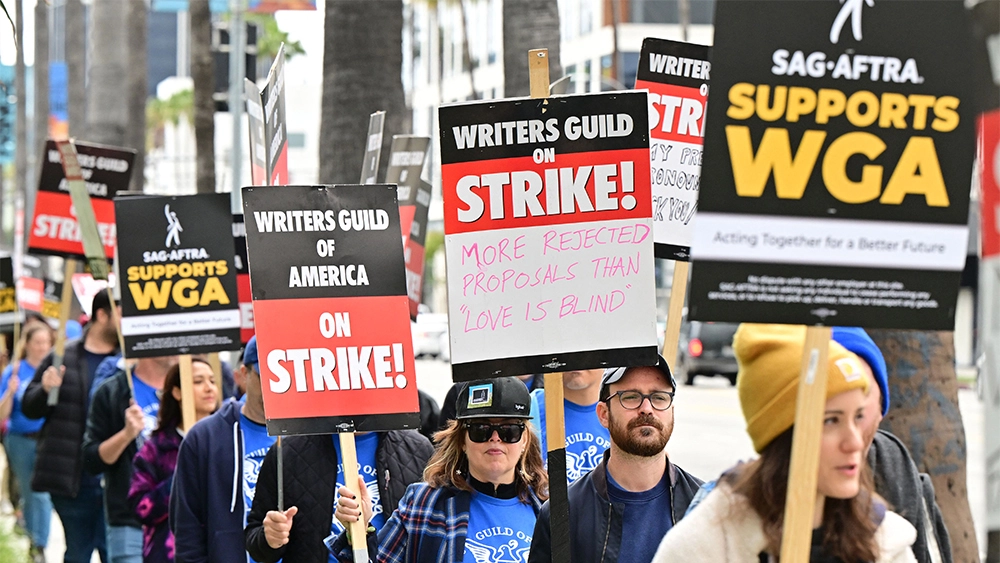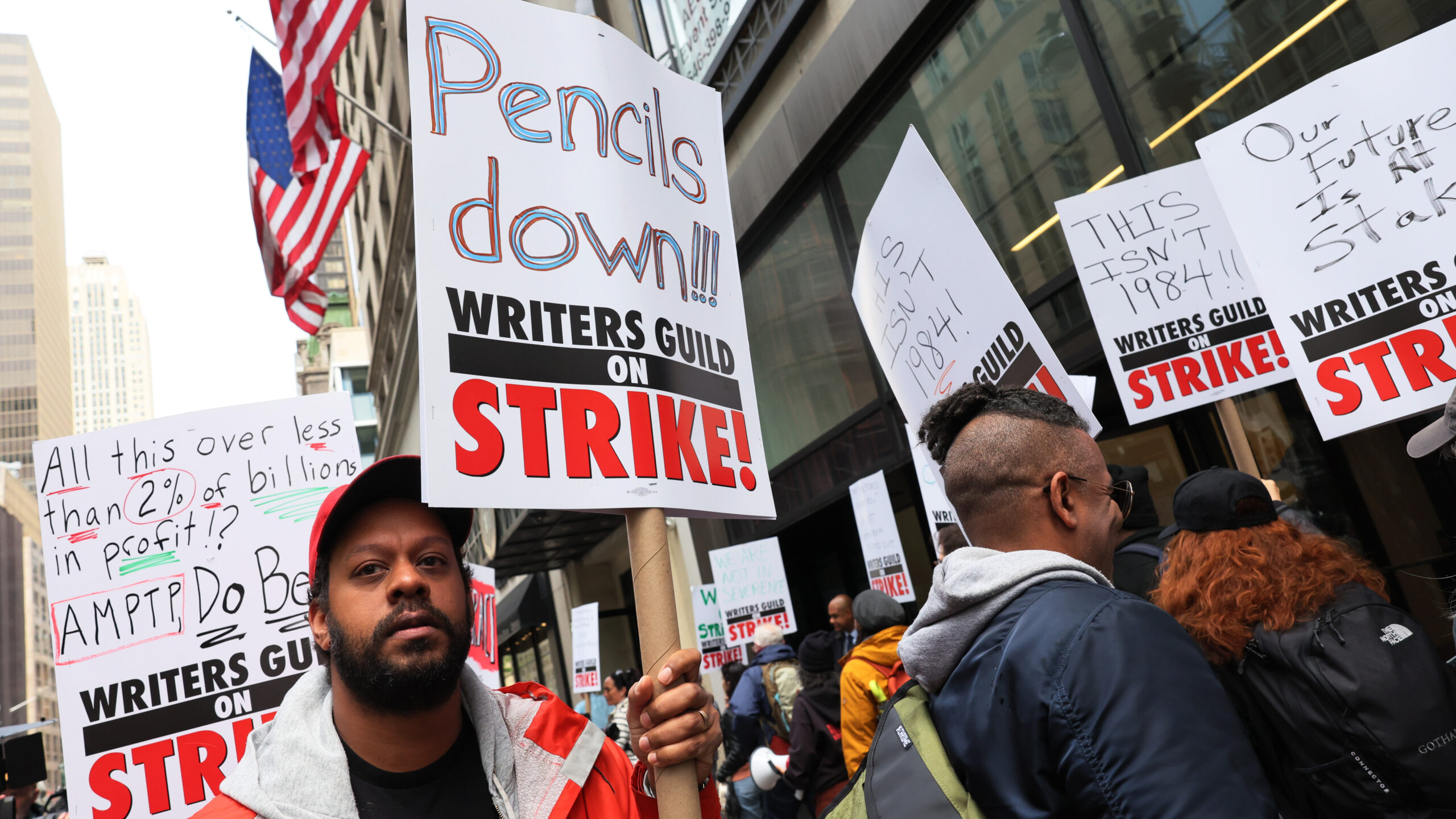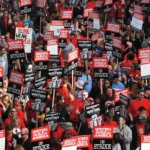AI kept at bay… for now – Emi S
In May, the Writer’s Guild of America went on strike against Hollywood studio CEOs. Now, almost 5 months later, they have finally reached a tentative deal that is yet to be specified. On September 20th, representatives met with the studio CEOs of Disney, Warner Bros, Netflix, and Universal, then again on the 21st, 22nd, and 23rd of September. By the 26th, a vote announced the strike would end on Wednesday 27th September at midnight.
During this period, the strike has cost the US economy approximately $5 billion, putting a stop to many major films, tv shows, awards shows, talks shows, and festivals – big titles include The Last of Us, Dune 2, Euphoria, Stranger Things, and The Handmaid’s Tale.

The strike was mainly centred around achieving the following:
- Increased writers’ room staffing
- Guaranteed weeks of work
- Viewership-based residuals on streaming
- Expanded pension and health contributions
(If you want to know more about the initial strikes and why they were important, click here).
Details of the tentative settlement are yet to be disclosed, but it is safe to say the WGA will not have settled for much less than they were expecting; concessions are in order to adapt to the changing landscape of the film and TV industry as well as the increasing threat of AI. The last major strike to upend the the film and TV industry occurred in 2007-08, lasting 100 days and costing an estimated $2.1 billion in economic losses – strange to think the production companies didn’t learn from this and allowed a further approximated $5 billion to be lost in 146 days this year.
‘The AI Argument’, though not the focal point of the strikes, has been becoming a more popular point of discussion since the rise of technological services such as ChatGPT. As such, the sense of foreboding attached to job security and job prospects in writing is certainly more prevalent in wake of the strike. Though this concern can be applicable to almost any career, it is the intrinsically creative, imaginative, and personal nature of a career in the arts that makes the involvement of AI in the creative industry appear a bad omen.
Some have been drawing comparisons from an episode of Black Mirror’s latest series, ‘Joan is Awful’. Despite not being well-received in comparison to previous episodes, its themes are strangely relevant to the surrounding concerns of the place of AI in the entertainment industry. The episode focuses on a large web of AI-generated TV shows, terrorising the main characters due to their inaccurate portrayals of the protagonists’ lives; this touches on the fears over the power of AI as well as its dubious morality in creating entertainment.

I’m not a fan of AI. In fact, I would go so far as to say I hate it. Its involvement in the subjective rather than the objective appears grossly wrong and counter-intuitive. Let’s hope in the next few years we don’t end up actually experiencing a Black Mirror episode, but by the sounds of it, we could be well on our way. Strikes such as this one emphasise the rift between the importance of humanity and progress for the sake of supporting the economy – which inadvertently, is a detriment to the economy when the latter option is favoured. Basically: value people, value their experiences, and value their passions – the entertainment industry would be reduced to a soulless chasm without them.















Post Comment
You must be logged in to post a comment.